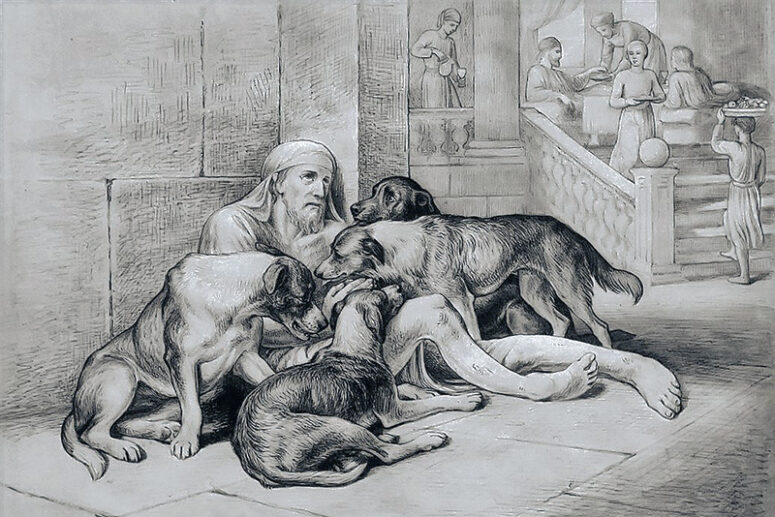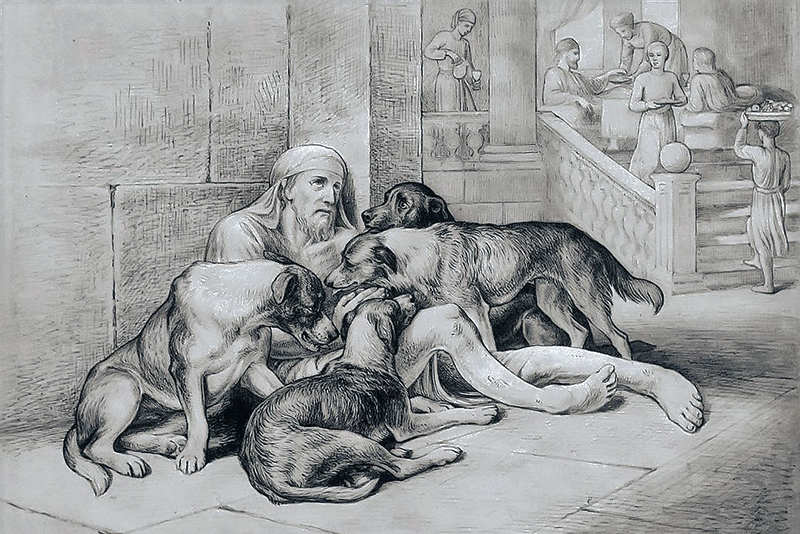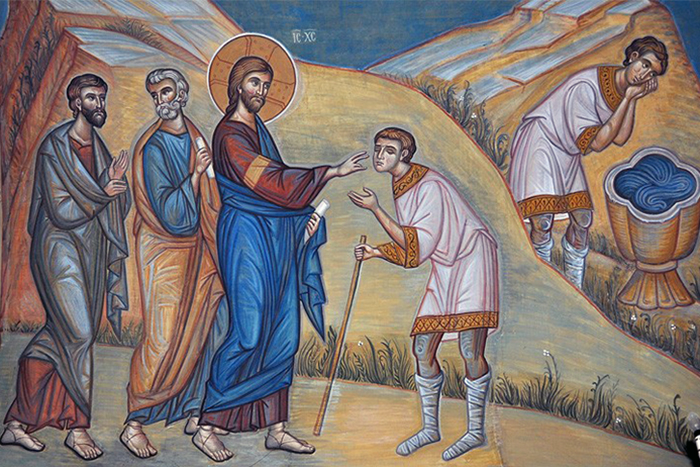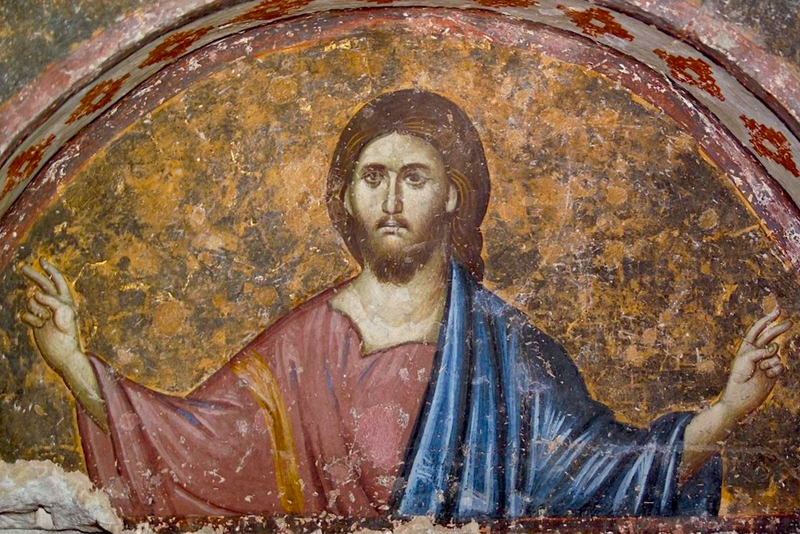
Luke 16: 19-31
Gal. 6: 11-18
The Lord said that ultimately some people will go “into eternal punishment”, while others will enter “the eternal life” (Matthew 25:46). But how can we imagine eternal torment, and is it really pleasing to God, Who is Love? (1 John 4:16) Today’s Gospel explains that.
There were once two people. One “was rich, dressed in purple and fine linen, and feasted lavishly every day. There was also a beggar named Lazarus, who was lying at his gate full of sores.” And that was how their lives were passing. Lazarus’s existence was barely noticeable to the rich man, and not once has he donated anything to him. Lazarus, on the other hand, has never harboured anger or envy. He has never made plans to redistribute the world’s riches or dreamt of dispossessing the cruel rich man. In fact he was not even hoping for alms on his part. His dreams were strictly within the limits of his capabilities. All that he was hoping for was to “nourish himself with the crumbs falling from the rich man’s table.” Both of the two were constant in their lives. The rich man was constant in his stubborn unwillingness to regard Lazarus as a human being, while Lazarus was constant in his meek acceptance of his lot. Eventually they both died. In the afterlife we also see them suffering a different fate, only in reversed image: Lazarus “was carried by the Angels to Abraham’s bosom”, while the rich man found himself “in hell” and “in torment”.
Further, we learn that Lazarus’s new abode could be seen from where the rich man was. We also see that people in the afterlife are not deprived of their freedom to speak, expressing their feelings and wishes. Senses tell the rich man where his sins have taken him; at the same time he sees what Lazarus has been made worthy of. However he neglects God’s judgement making Lazarus worthy to dwell “in Abraham’s bosom”. He still sees Lazarus as a sore-covered bum. Disdaining to speak to Lazarus, as if he was a speechless animal, the rich man turns to Abraham, “Father Abraham! Have mercy on me, and send Lazarus to dip the end of his finger in water and cool my tongue, for I am tormented in this flame.” Abraham patiently and meekly explains what is already clear to everyone: “Child, remember that in your lifetime you received your good things, while Lazarus received bad things, but now he is comforted here and you are in agony.” And then Abraham explains to the rich man one more attribute of the afterlife saying: “…between us and you a great chasm has been set in place, so that those who want to go from here to you cannot, nor can anyone cross over from there to us.”. In contrast to mortal life, the possibility of actively helping each other no longer exists beyond the grave.
But talking is not forbidden. And so, the rich man continues: “‘Then I beg you, father, send Lazarus to my family, for I have five brothers. Let him warn them, so that they will not also come to this place of torment.” The rich man continues to look down on Lazarus as on someone who is there to fulfil commands and run errands. But wait, didn’t he finally wake up to something good and begin to care for his brothers, desiring to instruct them on a good path? Unfortunately not, it’s not about taking care of the brothers. What we see is an indirect accusation of God and self-justification, “If a miraculous sign had been sent to me in due time, I would not have been here. And consequently, it’s not my fault, and there is nothing for me to repent of.”
Apparently, it is not only the life itself that matters, but also its final evaluation before God. The Lord not only summarizes our deeds, but also gives the right of the final word. The rich man says what he says, but it could be something completely different. He had every opportunity to exclaim something like, “Forgive me, Lazarus, my hard-heartedness! Pray for me, Father Abraham! Lord, have mercy on me!” Wouldn’t the heaven-dwellers intercede for him? Would the Lord not show His mercy? The Divine love cannot run out just as our freedom is not taken away from us behind the grave. That means that the eternal punishment is the lot of those who themselves push away the saving hand of God rejecting all evidence, all admonition from Moses, the prophets and apostles. Seeing some theologian’s attempts to twist the direct words of the Lord (Matthew 25:46) inside out and look for fancy ways to dispute the possibility of eternal punishment makes the inevitability of the latter especially obvious.
Translated by The Catalogue of Good Deeds
Source: https://azbyka.ru/otechnik/Vyacheslav_Reznikov/propovedi-na-kazhdyj-den/29_7




